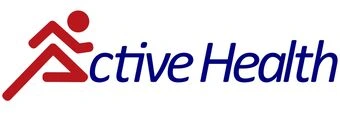Not-so-fun fact No. 1: You can develop Tennis Elbow and Golfer’s Elbow without ever picking up a tennis racquet or golf club. These conditions originate from either overusing certain muscles or poor biomechanics irritating the tendons of the elbow.
Not-so-fun fact No. 2: Statistics show that nearly 50 percent of tennis players report suffering from this injury at some point. And many more cases go unreported.
So how do you know if you have Tennis Elbow and Golfer’s Elbow? More important, how can you treat it? Determining the source of the injury is key to recovery. If not properly treated, more damage can occur and lengthen recovery time. At Active Health, our experienced team has developed proven methods for diagnosing and treating these painful conditions.
Golfer’s Elbow
Golfer’s Elbow (Medial Epicondylitis) is a condition that brings pain to the tendons on your forearm which connect to the inside of your elbow. The pain can radiate down and may impact your wrist. Playing golf is a common way to incite this injury, due to the repetitive inefficient motions involved with swinging a golf club.
Other activities that repeatedly flex the wrist and clench fingers can cause this condition. Some professions that are at higher risk for this injury include painters, mechanics, or handymen who use tools such as screwdrivers on a regular basis.
Tennis Elbow
Tennis Elbow (Lateral Epicondylitis) is an inflammation of the tendons that join the forearm muscles on the outside of the elbow. Swinging a tennis racquet, repeating a similar motion or constantly lifting heavy weight can lead to this condition. Excessive computer work which involves repetitive finger extension and constant wrist extension are prime candidates for this condition. Occupations that require lifting weighted objects repeatedly are also at risk for this type of injury, showing symptoms like weak grip strength.
Are You Suffering From the Pain of Tennis or Golfer’s Elbow?
Finally, a fun fact: Approximately 80-95 percent of patients have success with nonsurgical treatment. If you’ve been experiencing worsening pain in your elbow and forearm, contact Active Health at (904) 296-0202 or fill out this form online to make an appointment. Our trained staff can determine the exact cause of the injury and work with you to get you back to optimal health fast.
